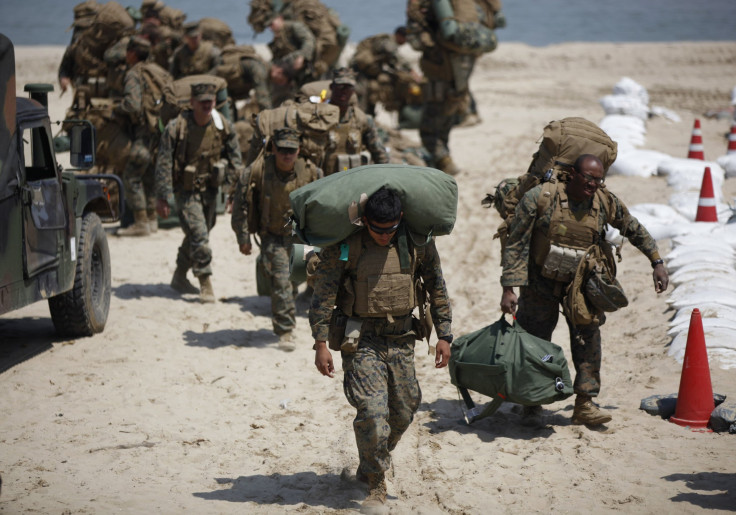Did Trump Just Slam US Military? Troops' Kids Born Overseas Not US Citizens Automatically

Children of some service members of the United States Armed Forces and U.S. federal government employees living abroad will no longer be automatically considered citizens of the United States, according to a change in policy announced by the U.S. Citizenship and Immigration Services (USCIS).
A policy alert by USCIS released Wednesday appears to narrow the path as to how children born abroad can gain citizenship. The updated policy will take effect on Oct. 29.
It reverses Section 320 of the Immigration and Nationality Act (INA), which states children born to U.S. citizen parents are considered to be "residing in the United States." This rule means these children are automatically granted citizenship under the INA.
Under the new USCIS policy, however, children born to U.S. service members and government employees (such as those born in U.S. military hospitals or diplomatic facilities) will not be considered as residing in the U.S. This redefinition will change the way these children potentially receive U.S. citizenship under a section of immigration law.
"The policy change explains that we will not consider children who live abroad with their parents to be residing in the United States even if their parents are U.S. government employees or US service members stationed outside of the United States, and as a result, these children will no longer be considered to have acquired citizenship automatically," said a USCIS spokesperson.
"For them to obtain a Certificate of Citizenship, their U.S. citizen parent must apply for citizenship on their behalf," she added. The process under INA 322 must be completed before the child's 18th birthday.
The federal government says INA 322 “provides for expedited naturalization of foreign born children who meet certain requirements, also while under the age of 18.”
The change is causing consternation within the U.S. military. The uproar forced USCIS acting director Ken Cuccinelli to declare "this policy update does not affect who is born a U.S. citizen, period."
"This only affects children who were born outside the United States and were not U.S. citizens. This does NOT impact birthright citizenship. This policy update does not deny citizenship to the children of U.S. government employees or members of the military born abroad," he noted.
Cuccinelli added the new “policy aligns USCIS' process with the Department of State's procedure, that's it."
The U.S. Department of Defense (DOD) is acting on these concerns by service members.
"DOD has been working closely with our colleagues at DHS/USCIS regarding recent policy changes and understands the estimated impact of this particular change is small," said a DOD spokesperson.
DOD believes the policy will affect a relatively small number of service members, which it estimates at about 100 annually. It reiterates the policy does not impact anyone born in the United States.
DOD also clarifies the policy appears to primarily affect the children of naturalized U.S. citizens serving in the armed forces that have not lived in the U.S. for a required period of time.
Cristobal Ramon, senior policy analyst at the Bipartisan Policy Center explains that under the previous policy, children of those affected by the new policy will be considered to be both living in and outside of the U.S. for purposes of eventually gaining citizenship.
He said that by stripping the children of the former, the only way they can get citizenship is through a parent applying for them. Before, it would've been automatic provided they meet certain requirements.
© Copyright IBTimes 2024. All rights reserved.





















